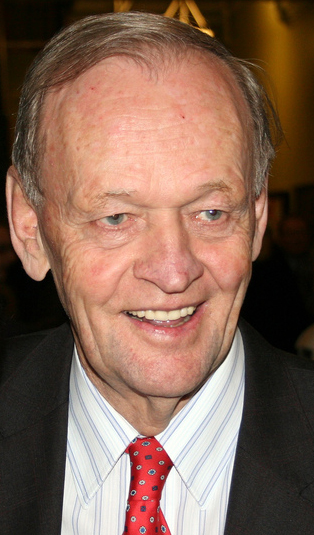
Joseph Jacques Jean Chrétien is a Canadian lawyer and politician who served as the 20th prime minister of Canada from 1993 to 2003.

Paul Edgar Philippe Martin, also known as Paul Martin Jr., is a Canadian lawyer and politician who served as the 21st prime minister of Canada and the leader of the Liberal Party of Canada from 2003 to 2006.
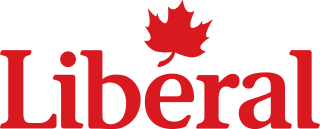
The Liberal Party of Canada is a federal political party in Canada. The party espouses the principles of liberalism, and generally sits at the centre to centre-left of the Canadian political spectrum, with their main rival, the Conservative Party, positioned to their right and the New Democratic Party positioned to their left. The party is described as "big tent", practising "brokerage politics", attracting support from a broad spectrum of voters. The Liberal Party is the longest-serving and oldest active federal political party in the country, and has dominated federal politics of Canada for much of its history, holding power for almost 70 years of the 20th century. As a result, it has sometimes been referred to as Canada's "natural governing party".
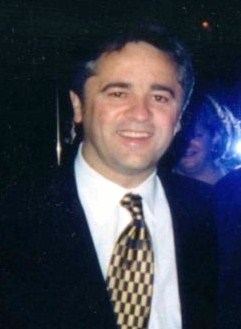
Brian Vincent Tobin is a Canadian businessman and former politician. Tobin served as the sixth premier of Newfoundland from 1996 to 2000. Tobin was also a prominent Member of Parliament and served as a cabinet minister in Jean Chrétien's Liberal government.

Ernest Preston Manning is a retired Canadian politician. He was the founder and the only leader of the Reform Party of Canada, a Canadian federal political party that evolved into the Canadian Alliance in 2000 which in turn merged with the Progressive Conservative Party to form today's Conservative Party of Canada in 2003. Manning represented the federal constituency of Calgary Southwest in the Canadian House of Commons from 1993 until his retirement in 2002. He served as leader of the Official Opposition from 1997 to 2000.

Stephen Joseph Harper is a Canadian politician who served as the 22nd prime minister of Canada from 2006 to 2015. Harper is the first and only prime minister to come from the modern-day Conservative Party of Canada, serving as the party's first leader from 2004 to 2015.

The 2000 Canadian federal election was held on November 27, 2000, to elect members to the House of Commons of Canada of the 37th Parliament of Canada. Prime Minister Jean Chrétien's Liberal Party won a third majority government.

The 1997 Canadian federal election was held on June 2, 1997, to elect members to the House of Commons of the 36th Parliament of Canada. Prime Minister Jean Chrétien's Liberal Party won a second majority government. The Reform Party replaced the Bloc Québécois as the Official Opposition.

The 1993 Canadian federal election was held on October 25, 1993, to elect members to the House of Commons of the 35th Parliament of Canada. Considered to be a major political realignment, it was one of the most eventful elections in Canada's history. Two new regionalist parties emerged, finishing second and third in seat count. Most notably, the election marked the worst defeat for a governing party at the federal level and among the worst ever suffered by a governing party in the Western democratic world. In a landslide, the Liberal Party, led by Jean Chrétien, won a majority government.

Pierre Stewart Pettigrew is a Canadian politician and businessman.

The 2003 Ontario general election was held on October 2, 2003, to elect the 103 members of the 38th Legislative Assembly of the Province of Ontario, Canada.

Reginald B. Alcock, was a Canadian politician. He represented the riding of Winnipeg South in the House of Commons of Canada from 1993 to 2006 and was a cabinet minister in the government of Prime Minister Paul Martin. Alcock was a member of the Liberal Party of Canada.
Warren James Kinsella is a Canadian lawyer, author, musician, political consultant, and commentator. Kinsella has written commentary in most of Canada's major newspapers and several magazines, including The Globe and Mail, the Toronto Sun, Ottawa Citizen, the National Post,The Walrus, and Postmedia newspapers. He appeared regularly on the Sun News Network. Kinsella is the founder of the Daisy Consulting Group, a Toronto-based firm that engages in paid political campaign strategy work, lobbying and communications crisis management.
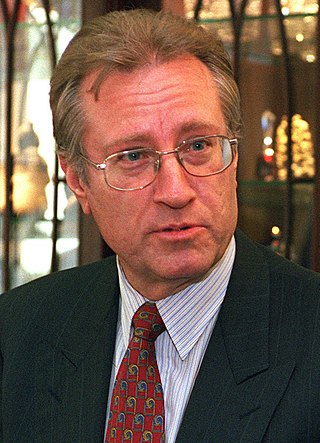
Arthur C. Eggleton is a retired Canadian politician who served as the 59th and longest-serving mayor of Toronto from 1980 to 1991. He was elected to Parliament in 1993, running as a Liberal in York Centre and served as a member of Parliament (MP) until 2004 when he declined to seek re-election. Eggleton held a number of cabinet positions from 1993 to 2002 including Treasury Board president, minister of infrastructure, minister of international trade, and minister of national defence. He was appointed to the Senate in 2005, serving until he reached the mandatory retirement age of 75 in 2018.
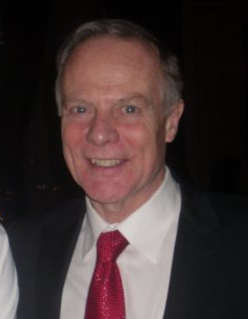
Jon Gerrard is a politician in Manitoba, Canada. He was a Member of Parliament (MP) from 1993 to 1997, and was a secretary of state in the government of Jean Chrétien. He was the leader of the Manitoba Liberal Party from 1998 until 2013, and the member of the Legislative Assembly of Manitoba for River Heights from 1999 until his defeat in 2023.
Bernard Valcourt is a Canadian politician and lawyer, who served as Member of Parliament for the electoral district of Madawaska—Restigouche, New Brunswick until he was defeated in the 2015 federal election.

The Young Liberals of Canada (YLC) is the national youth wing of the Liberal Party of Canada. All members of the Liberal Party aged 25 and under are automatically members of the YLC. The Young Liberals of Canada are an official commission of the Liberal Party and the largest youth political organization in Canada.
Conservatism in Canada is generally considered a movement which is primarily represented by the modern-day Conservative Party of Canada in federal party politics, as well as various centre-right and right-wing parties at the provincial level. Far-right politics have never been a prominent force in Canadian society. The first party which called itself "Conservative" in what would become Canada was elected in the Province of Canada election of 1854.

The 2008 Canadian federal election was held on October 14, 2008, to elect members to the House of Commons of Canada of the 40th Canadian Parliament after the previous parliament had been dissolved by Governor General Michaëlle Jean on September 7, 2008.
This article covers the history of the Liberal Party of Canada.














